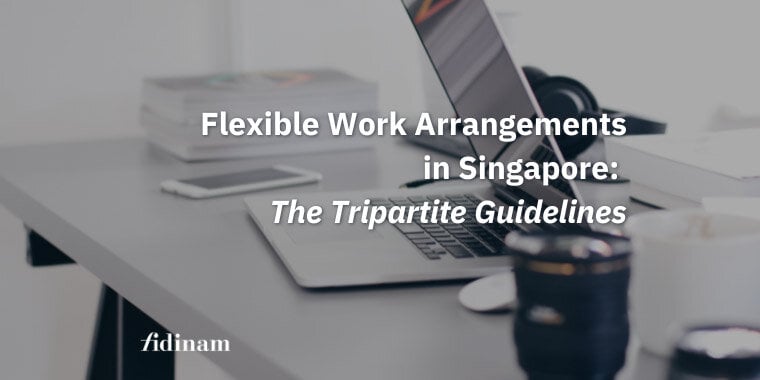
In recent years, the traditional 9-to-5 work schedule has evolved, making flexible work arrangements (FWAs) an increasingly important part of inclusive workplaces.
FWAs benefit both employers and employees when implemented to meet mutual needs. Additionally, they play a key role in talent attraction and retention strategies, as well as support business continuity during work exigencies.
Singapore, known for its progressive business environment, has embraced this evolution and recently announced official guidelines regarding minimum requirements.
In this article, we explore the essentials of implementing flexible work arrangements in Singapore, including an overview of the types of FWAs available, the formal request process as outlined by recent guidelines, and the considerations employers must take into account.
The Tripartite Alliance for Fair and Progressive Employment Practices (TAFEP) and Ministry of Manpower (MOM) announced and issued the new Tripartite Guidelines on Flexible Work Arrangement Requests (Guidelines), effective from 1 December 2024.
The Guidelines set out the minimum requirements that all employers are required to abide by, recommend other good practices for employers to consider in relation to formal FWA requests and states how employees should request for FWAs and use them.
While the Guidelines encourage employers to offer FWAs to employees, they are not required to do so. This means that the Guidelines will cover the processes to submit and evaluate formal requests for FWA, but will not govern the outcome of the FWA.
FWAs are defined as work arrangements where employers and employees agree to a variation from the standard work arrangements.
These typically fall into one of these 3 broad categories:
All employees who have completed probation are entitled to lodge a formal FWA request under the Guidelines. However, employers are free to consider FWA requests from employees on probation if they wish.
The process to request and consider formal FWA requests is as follows:
Employers should have a clear process for employees to submit formal FWA requests. By default, employees should follow such process including any stipulated requirements (e.g., format, required information, etc.).
In the absence of any process or stipulated requirements, an employee must make a formal FWA request which satisfies the basic requirements below; failing which, the request will not be a formal request covered by the Guidelines:
(i) request must be in writing;
(ii) request must include the following information:
Alternatively, the employee may use the sample template in Annex A of the Guidelines.
Employers are required to:
(a) Discuss FWA requests in an open and constructive manner to come to a mutual agreement to best meet both organisational and employee needs. Disagreements should ideally be dealt with through the employer’s internal grievance handling procedure; and
(b) Consider FWA requests properly by focusing on factors related to the employee’s job and how the requested FWA may affect the business or the employee’s performance of the job.
Employers are entitled to reject a FWA request – but this should be based on reasonable business grounds and not personal bias against FWAs.
Some examples of reasonable business grounds include:
Any clarifications and discussions on the request – along with the communication on approval or rejection (as the case may be) – should be within 2 months.
If an employer rejects a request, the reason for rejection should be included in the written decision.
Flexible work arrangements in Singapore offer significant benefits by enhancing workplace flexibility and employee satisfaction. The FWA policy in Singapore, as outlined by the Tripartite Guidelines, supports both employers and employees in applying these arrangements effectively.
For more detailed information on how the FWA policy Singapore can impact your business, or to discuss implementing FWAs in your workplace, please feel free to contact Fidinam Singapore via the form below or at info@fidinamgw.com.
All content © . All Rights Reserved.